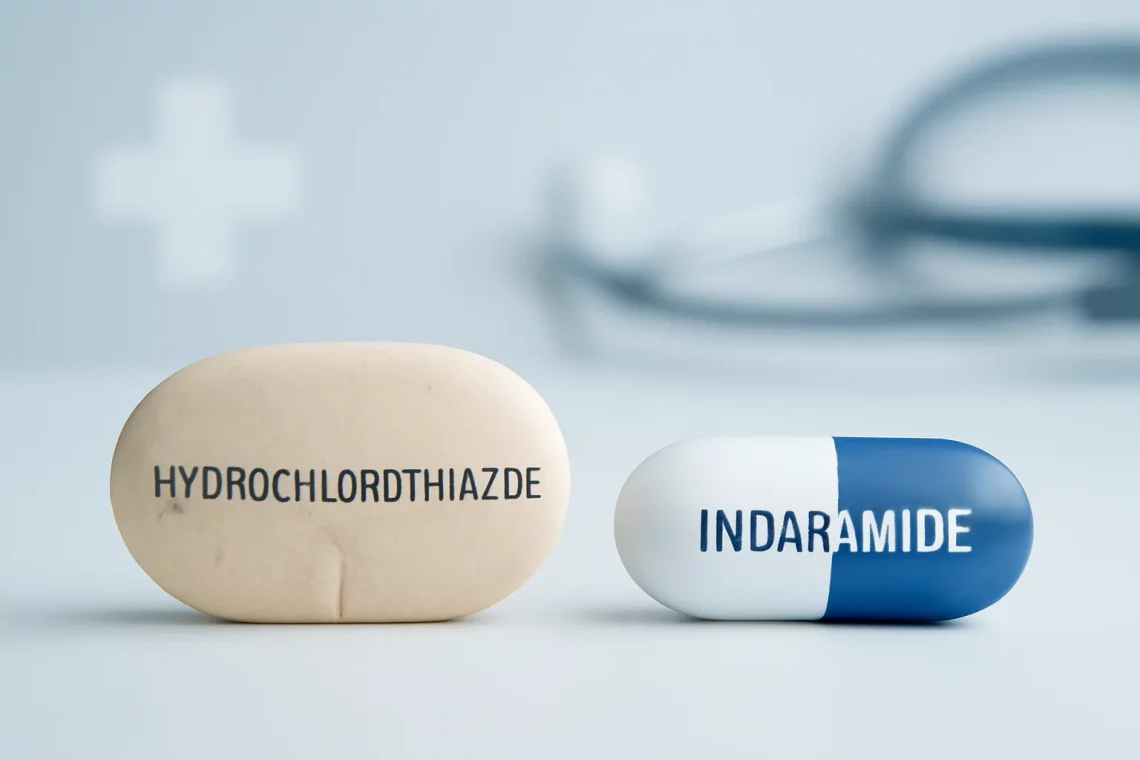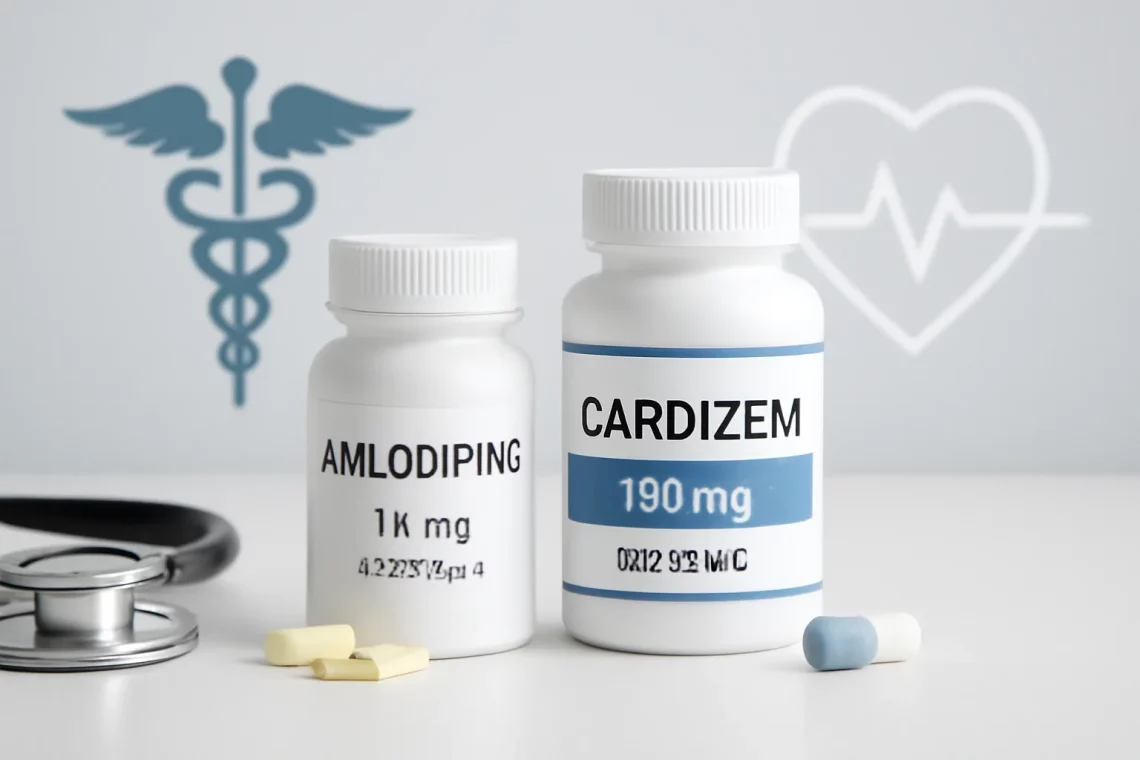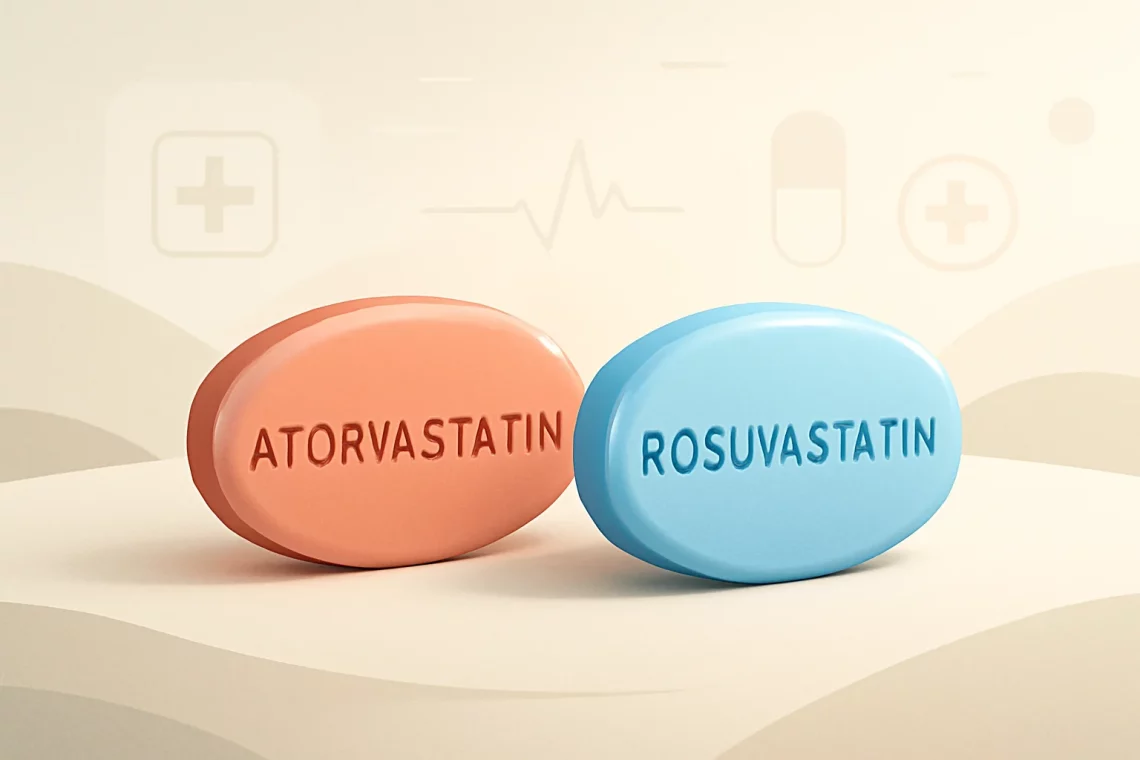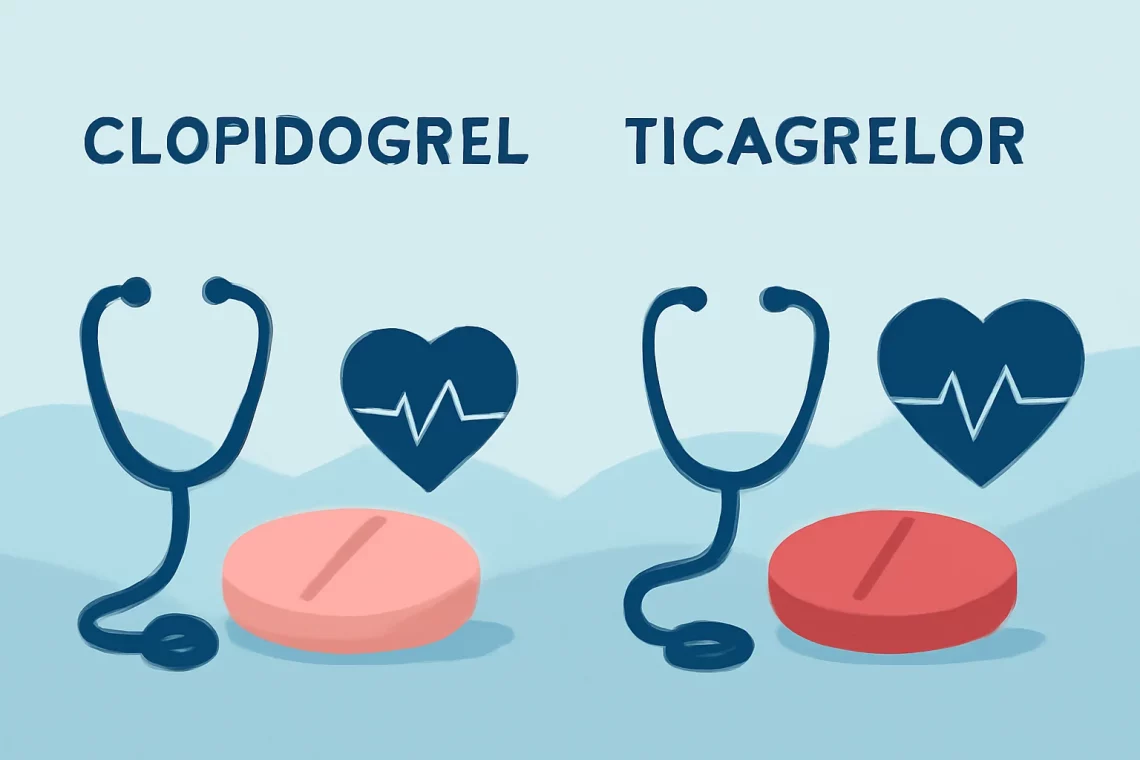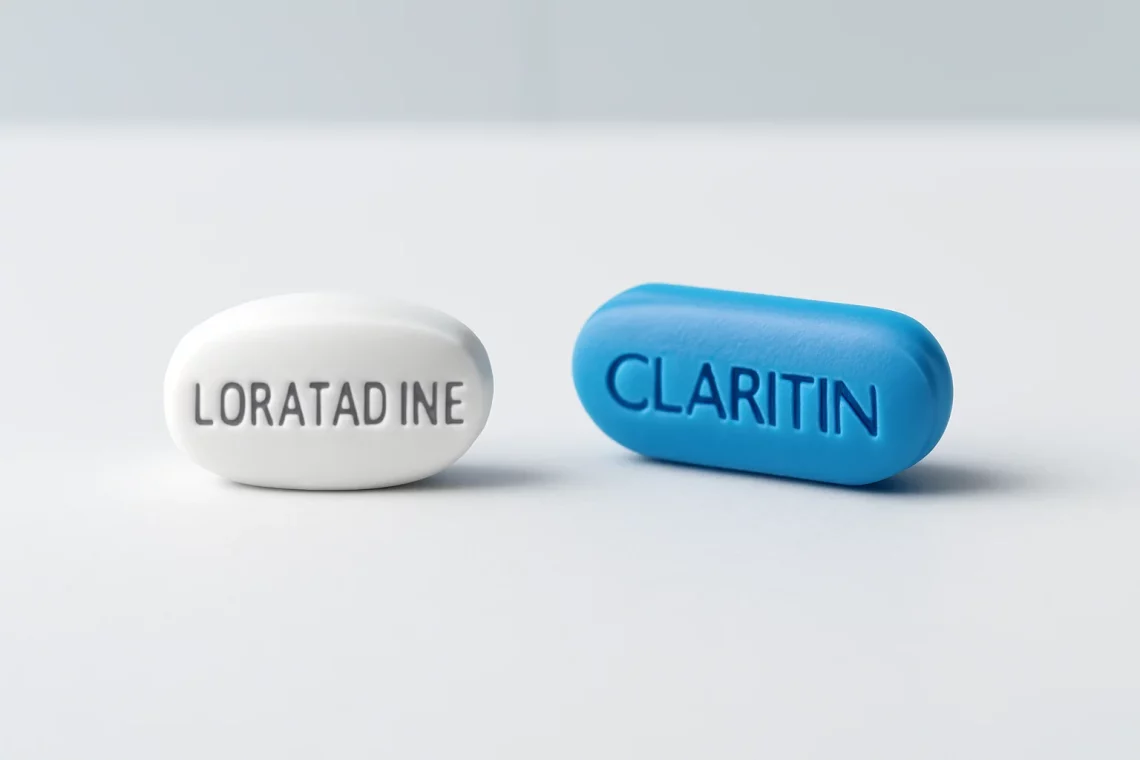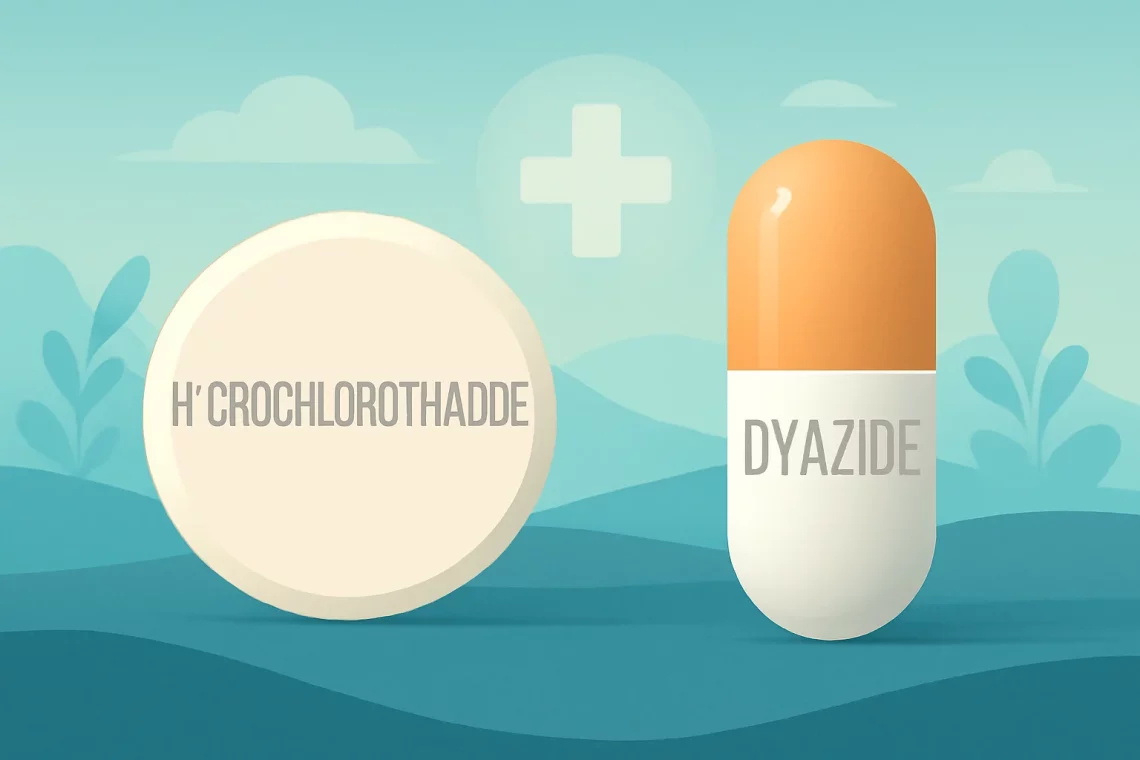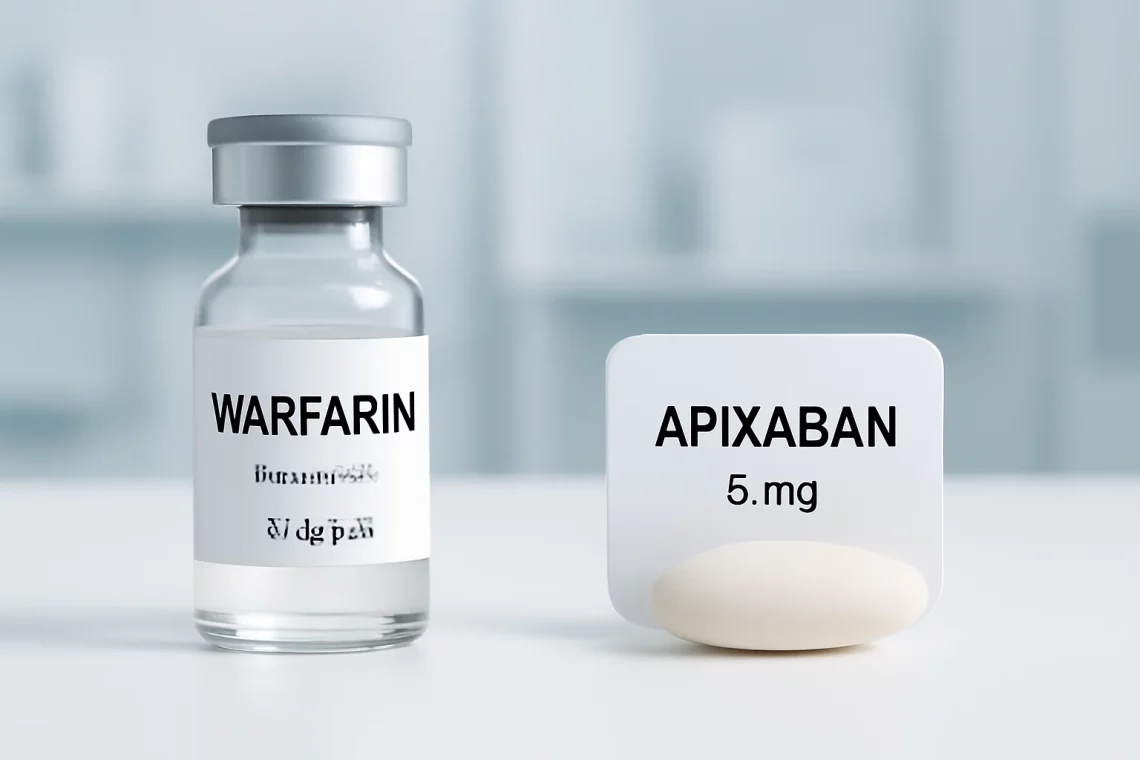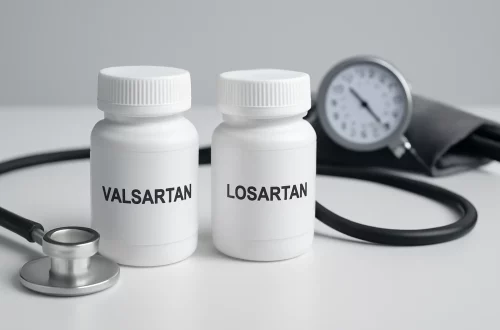-
Hydrochlorothiazide vs Indapamide: Key Differences Explained
High blood pressure, also known as hypertension, is a prevalent health condition affecting millions of individuals worldwide. Often dubbed the “silent killer,” hypertension can lead to serious health complications if not managed properly. As such, effective management of blood pressure is crucial for maintaining overall health and preventing associated risks such as heart disease, stroke, and kidney problems. Among the various treatment options available, both hydrochlorothiazide and indapamide stand out as commonly prescribed diuretics. These medications play a significant role in helping patients regulate their blood pressure levels while also contributing to fluid balance in the body. Understanding the differences and similarities between hydrochlorothiazide and indapamide can be vital for…
-
Amlodipine vs Cardizem: Comparing Two Common Blood Pressure Medications
Amlodipine and Cardizem are two commonly prescribed medications used to manage hypertension and certain types of angina. Both belong to a class of drugs known as calcium channel blockers, which work by relaxing the blood vessels to allow for easier blood flow. Over the years, these medications have gained popularity due to their effectiveness in controlling blood pressure and alleviating chest pain associated with heart conditions. While both Amlodipine and Cardizem serve similar purposes, they have distinct differences that can influence a doctor’s choice when prescribing them. Factors such as the patient’s medical history, specific health conditions, and potential side effects play a crucial role in determining which medication may…
-
Atorvastatin vs Rosuvastatin: Which Statin is Right for You?
Atorvastatin and rosuvastatin are two widely prescribed medications belonging to a class known as statins, which are primarily used to lower cholesterol levels in the blood. These medications play a crucial role in managing hyperlipidemia and reducing the risk of cardiovascular diseases such as heart attacks and strokes. Statins work by inhibiting a specific enzyme involved in the production of cholesterol in the liver, thereby helping to lower levels of low-density lipoprotein (LDL) cholesterol, often referred to as “bad cholesterol.” With the increasing prevalence of cardiovascular diseases, the importance of effective cholesterol management has gained significant attention. Many individuals have turned to statins as an integral part of their treatment…
-
Clopidogrel vs Ticagrelor: Which Antiplatelet Drug is Better?
Clopidogrel and ticagrelor are two antiplatelet medications commonly prescribed for patients at risk of thrombotic cardiovascular events, such as heart attacks and strokes. Both medications play a critical role in managing cardiovascular diseases by preventing the aggregation of platelets, which can lead to the formation of blood clots. While they share a common goal of reducing the risk of serious cardiovascular events, they differ in their mechanisms of action, dosing, and potential side effects. Understanding the nuances between clopidogrel and ticagrelor is essential for healthcare providers and patients alike. As cardiovascular diseases remain a leading cause of morbidity and mortality worldwide, the choice of antiplatelet therapy can significantly impact patient…
-
Dexmethylphenidate vs Methylphenidate: Key Differences Explained
Dexmethylphenidate and methylphenidate are two medications commonly used to treat attention deficit hyperactivity disorder (ADHD) and narcolepsy. Both drugs belong to the class of stimulants and are known for their ability to enhance focus, attention, and impulse control. While they share many similarities in terms of their mechanisms of action, chemical structures, and therapeutic uses, there are key differences that can influence a physician’s choice between the two. Understanding these differences is crucial for patients, caregivers, and healthcare providers alike. The popularity of these medications has surged in recent years, leading to increased awareness and discussions around their efficacy, potential side effects, and the implications of their use. As mental…
-
Loratadine vs Claritin: Key Differences You Should Know
Loratadine and Claritin are terms often used interchangeably in discussions regarding the management of allergy symptoms. For many, particularly those suffering from seasonal allergies or allergic rhinitis, understanding the nuances between these two names can be critical in making informed decisions about their health. As a second-generation antihistamine, loratadine has gained popularity for its effectiveness in alleviating allergy-related symptoms such as sneezing, runny nose, and itchy eyes. However, Claritin, which is a brand name for loratadine, has also carved out a significant place in the market, leading to some confusion among consumers about their differences. The landscape of allergy medications is vast, with countless options available that promise relief from…
-
Hydrochlorothiazide vs Dyazide: Key Differences and Uses Explained
Hydrochlorothiazide and Dyazide are two medications often discussed in the context of managing hypertension and fluid retention. Both of these drugs belong to the class of thiazide diuretics, which are commonly prescribed for lowering blood pressure and reducing excess fluid in the body. While they share some similarities, they also possess distinct characteristics that can influence a healthcare provider’s choice when determining the most appropriate treatment for a patient. Understanding the nuances between Hydrochlorothiazide and Dyazide can be beneficial for patients, caregivers, and healthcare professionals alike. The choice of medication can depend on various factors, including the patient’s overall health, specific medical conditions, and the presence of other medications. Furthermore,…
-
Warfarin vs Apixaban: Which Anticoagulant Is Right for You?
Warfarin and Apixaban are two commonly used anticoagulants that have transformed the management of thromboembolic disorders. These medications play a crucial role in preventing blood clots, which can lead to serious complications such as stroke and deep vein thrombosis. The choice between Warfarin and Apixaban often depends on various factors, including the specific medical condition being treated, patient preferences, and the physician’s assessment. Anticoagulants are pivotal in modern medicine, but the decisions surrounding their use can be complex. Patients may experience anxiety about the risks and benefits associated with these drugs, given their potential side effects and the need for regular monitoring, particularly with Warfarin. Understanding how these medications work,…
-
Warfarin or Apixaban: Choosing the Right Anticoagulant for You
The choice between Warfarin and Apixaban has become increasingly relevant in discussions surrounding anticoagulant therapy. As the prevalence of conditions such as atrial fibrillation and venous thromboembolism rises, understanding the nuances of these two medications is essential for both healthcare providers and patients. Anticoagulants play a crucial role in preventing blood clots, which can lead to serious health complications, including stroke and pulmonary embolism. Warfarin, a traditional anticoagulant, has been used for decades and is known for its effectiveness, but it comes with certain dietary restrictions and requires regular monitoring of blood levels. In contrast, Apixaban is a newer medication that falls into the category of direct oral anticoagulants (DOACs).…
-
Canagliflozin vs Dapagliflozin: Which is the Better Diabetes Treatment?
The management of diabetes has evolved significantly over the years, with new medications continually being developed to enhance treatment efficacy and improve patient outcomes. Among these advancements, SGLT2 inhibitors have emerged as a pivotal class of medications for managing Type 2 diabetes. These drugs work by promoting the excretion of glucose through urine, thereby lowering blood sugar levels. Canagliflozin and Dapagliflozin are two prominent medications within this class, each with distinct profiles and benefits. Both of these medications have garnered attention for their ability not only to control blood sugar but also to provide additional cardiovascular and renal benefits. As the prevalence of diabetes continues to rise globally, understanding the…
